Guinea Pig Sneezing & What It Means
Why is my guinea pig sneezing? Like humans, guinea pigs sneeze to eliminate irritants and foreign particles from their nasal passages. Guinea pig sneezes resemble human sneezes, albeit they are gentler due to their small stature. Sneezing is quite common for guinea pigs, and the occasional sneeze is typically nothing to worry about. A common cause of sneezing is an irritant to the nose, such as dust. If your guinea pigs sneeze becomes more frequent or is accompanied by other disease symptoms, it may indicate a more severe condition.
Excessive sneezing or sneezing followed by other symptoms may indicate a respiratory tract illness or a problem with your guinea pig’s bedding or living environment. Let’s delve deeper to understand more.
What Causes Guinea Pigs To Sneeze
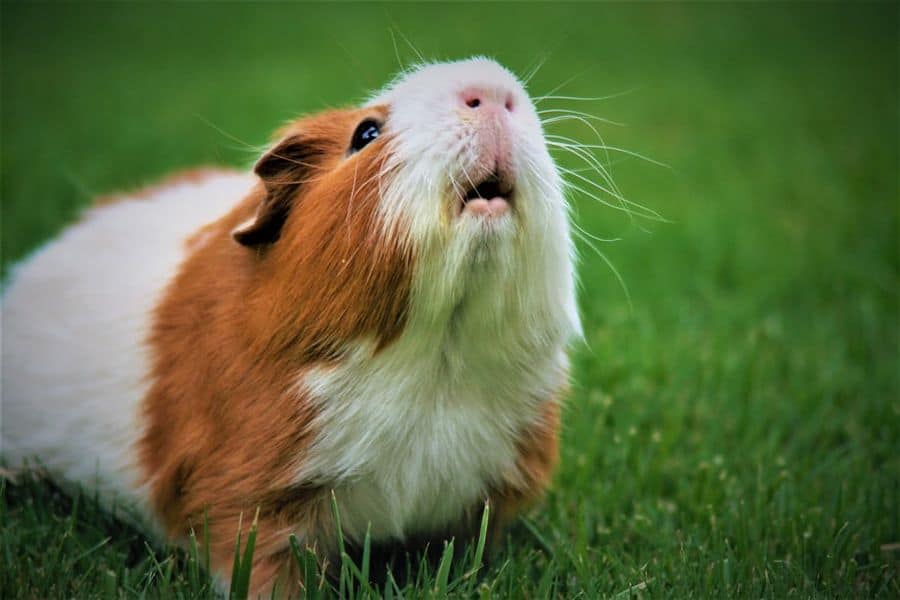
Most people are unaware of how similar our animal companions are to us, or perhaps how similar we are to them! Guinea Pigs sneeze to eliminate irritants, such as dust or strong odors, from their noses. Occasionally, dry weather might be annoying and result in increased sneezing. Hay dust or wood shavings are the most common cause of a sneezing cavie; thus, we recommend using fleece or a high-quality bedding product.
Pigs, like humans, are prone to allergies. They may develop allergies to the dust in their bedding, pollen, or the cleaning agents used in their enclosure. Around pets, heavy scents in the air, such as air fresheners, should be used sparingly to prevent allergies. Guinea Pigs may also have or acquire food allergies; therefore, their diets must be managed appropriately.
Stress is another leading cause of more frequent sneezes than usual. These little guys rely on us to make their life as comfortable as possible, so if something stresses them out, their bodily behavior will reflect it. Stress causes for piggies can be:
- Acquiring new friends
- An inadequate enclosure
- Lack of physical activity
- Fear of other domestic animals
It is also crucial that your cavy receives an adequate amount of vitamin C. As with humans, Guinea Pigs cannot generate vitamin C on their own, resulting in a weaker immune system incapable of fighting off infection. Due to the proximity of their nasal cavities to their teeth, a sneezing pig may also indicate potential dental problems. There may be more causes for your pig’s increased sneeze, which you should address with your local veterinarian.
Other Possible Causes For Your Guinea Pig Sneezing
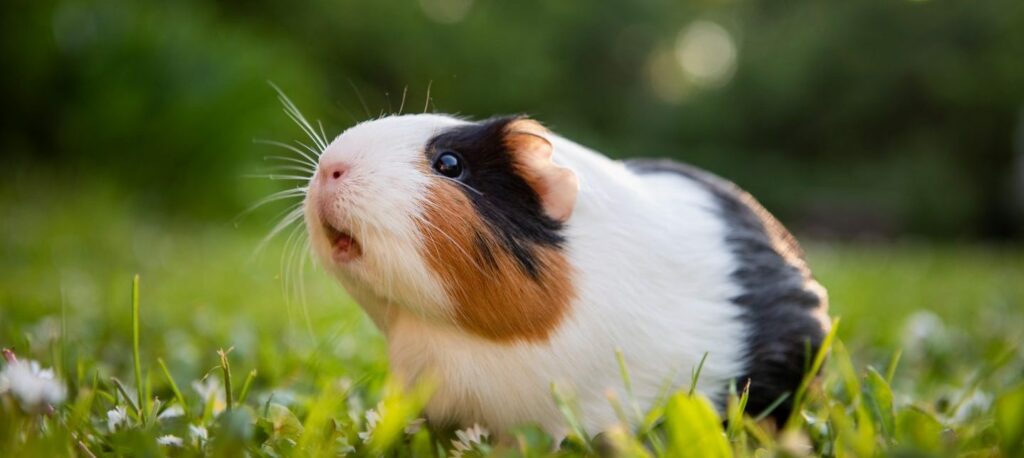
Weather Change
Dry circumstances may irritate the nasal passages of your cavie, causing it to sneeze more than usual.
Allergies
An allergic reaction is another because of your pig’s frequent sneezing. It may be due to dust in the bedding, air, pollen, or a food additive.
Stress
Also, stress can cause your guinea pig sneezing more often. This is because it compromises its immune system, making it more prone to allergies and respiratory infections. Stressors for cavies include the following:
- Transferring from a breeder, pet shop, or rescue facility to a new home
- The introduction of a guinea pig
- The hutch was overcrowded
- Aggression or intimidation by a fellow guinea pig
- Insufficient living space and lack of physical activity
Vitamin Deficiency
If your guinea pig’s food is deficient in vitamin C, it is susceptible to upper respiratory infections. This is because its immune system is impaired, and it cannot fight off disease-causing microorganisms. Ensure that your cavies receive an abundance of vegetables and fruits as part of their daily diet.
Upper Respiratory Tract Infection
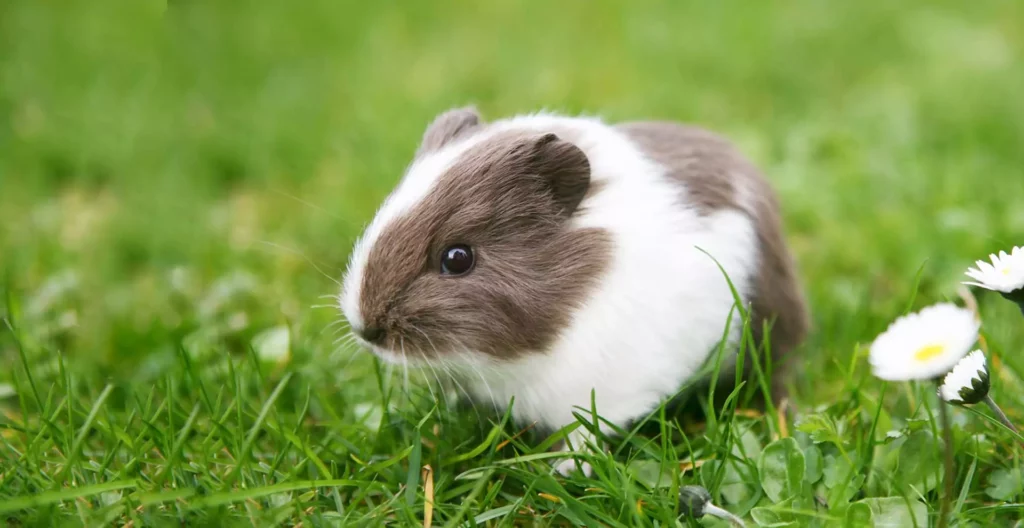
Your guinea pig will sneeze due to an upper respiratory infection (URI) like a cold or pneumonia. Urgent veterinarian care is required since an upper respiratory infection can be lethal for your pocket pet. Thankfully, if your guinea pig is sick and sneezing, other signs will be difficult to overlook.
Coughing
If your guinea pig sneezing accompanied by a cough, wheezing, or shortness of breath, they have a respiratory infection. Also, if the heavy breathing turns into a crackling or clicking sound, it is essential to act immediately.
Exudation From The Nose
When your cavy is experiencing an allergic response, its nose may become itchy and red. However, a yellowish discharge indicates that your guinea pig has respiratory problems that require immediate attention.
Weight Reduction
Unexplained weight loss is one of the most evident indications that something is wrong with your guinea pig. This, together with persistent sneezing, suggests that your piggie has an infection of some kind and needs to be seen by a veterinarian immediately.
Changes In Behavior
No one knows your cavy better than you do, so any changes in its behavior indicate something is wrong. Visit your local veterinarian if your guinea pig exhibits hostility toward other guinea pigs, antisocial behavior, heightened agitation, or excessive sneezing.
Extreme Weakness
This is a significant problem if your cavy is struggling to walk and exhibiting excessive indications of frailty. We advise that you see a veterinarian promptly.
When Sneezing Is Concerning
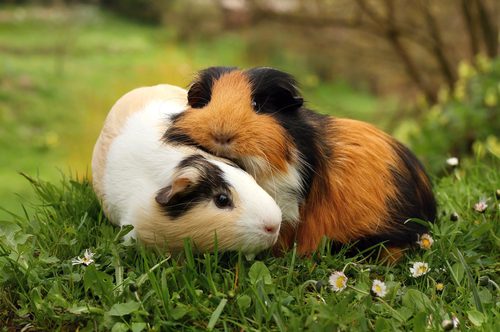
As with all pets, their physical health should be monitored for any strange symptoms to prevent life-threatening diseases. Due to the small size of guinea pigs, upper respiratory infections (URIs) can be lethal if not treated early. A Guinea Pig with excessive sneezing, a wet cough, discharge, or a crackling/clicking sound when breathing must see a veterinarian immediately.
Therefore, while their tiny sneezes are endearing, more than two to four times per day is cause for concern, especially when paired with any of the following symptoms. Changing their hay, using fleece instead of wood shavings, or even eliminating an air freshener may suffice. Be sure to rule out an upper respiratory infection with your veterinarian before removing potential irritants from home.
How To Stop Guinea Pigs Sneezing
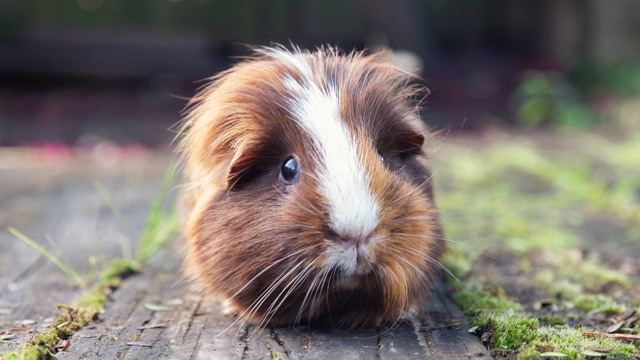
Not all diseases can be prevented, but by taking a few precautions, you can help your pig enjoy a comfortable life. Initially, you will need to determine the placement of their enclosure. Is it in a well-ventilated environment devoid of strong odors and excessive dust? Good ventilation prevents dust accumulation, preventing your cavie from sneezing.
Additionally, cavies require warm temperatures because they are susceptible to catching a cold. In addition, they must never be wet or moist for extended periods. For example, following a bath, ensure they are dried off immediately.
Examine various bedding types to see which works best for you and your pig. Hay and shavings are known to trigger dust allergies; thus, we always recommend using fleece as bedding. Proper cleaning of their enclosure prevents the spread of bacteria and eliminates unpleasant odors. If you cannot determine the cause of your pig’s persistent sneezing, it is time to take them to the veterinarian to ensure a long and healthy life.
Conclusion
What is the cause of guinea pig sneezing? While the occasional sneeze is natural and endearing, your cavy should not sneeze more than 2-4 times per day. It is essential to check your pig’s health to detect early signs of illness. Sneezing may indicate a severe ailment, such as an upper respiratory infection (URI), although it may be caused by something as simple as their hay.
As pet owners, we are answerable to ensuring that our pets have the best life possible. They understand that your Guinea Pig can sneeze and when to be concerned is an excellent way to be a responsible pet owner. All Guinea Pigs can live happy, squeaky lives with a bit of education and the assistance of a kind veterinarian.
